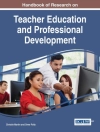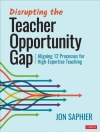Chinese citizens are becoming increasingly mobile, both inside China and abroad, as migrant workers, tourists, and students. China is caught between perceived benefits and dangers posed by mobility, complicated by the government’s own conflicting impulses to support and discourage it. Mobility and Cultural Authority in Contemporary China demonstrates this intricate balance through an in-depth look at patterns of migration and state response.
Pál Nyíri argues that the loosening of China’s restrictions on internal and international migration, its promotion of domestic tourism, and its increasingly positive portrayal of migrants all follow a similar logic in which mobility comes to epitomize a new and modern China. Yet the loosening of administrative control is compensated by the imposition of cultural control over how mobility is represented and how mobile citizens make sense of their new experiences, as well as by continued restrictions on types of movement that are seen as undesirable.
With ever-growing popular and academic scrutiny of the topic of national and international migration, this compact, engrossing, and timely study is well poised to be read widely by scholars interested in globalization, nationalization, modernization, tourism, and modern China.
Table des matières
Introduction
1. Internal Migration in Reform China
2. International Migration from China
3. Tourism in Contemporary China
4. The Usefulness of Mobility Producing Modern Citizens
5. The Dangers of Mobility Disciplining the Traveler
6. Conflicting Impulses Mobility Encouraged and Hindered
7. Conclusion | Mobility and Cultural Control
Notes
References
Index
A propos de l’auteur
Pál Nyíri is professor of global history from an anthropological perspective at the University of Amsterdam. He is the author of Scenic Spots: Chinese Tourism, Cultural Authority, and the State (University of Washington Press, 2006) and Mobility and Cultural Authority in Contemporary China (University of Washington Press, 2010); coauthor of Seeing Culture Everywhere, from Genocide to Consumer Habits (University of Washington Press, 2009); and coeditor of Chinese Encounters in Southeast Asia: How People, Money, and Ideas from China Are Changing a Region (University of Washington Press, forthcoming 2016).












